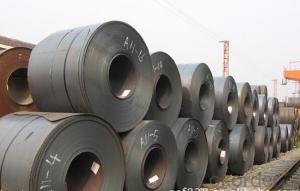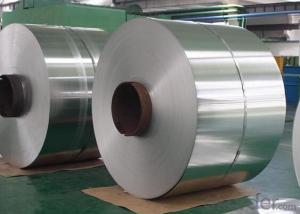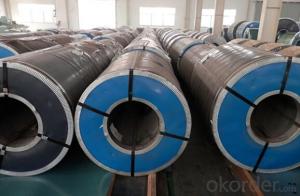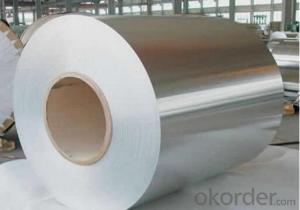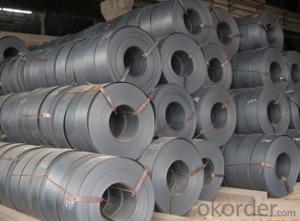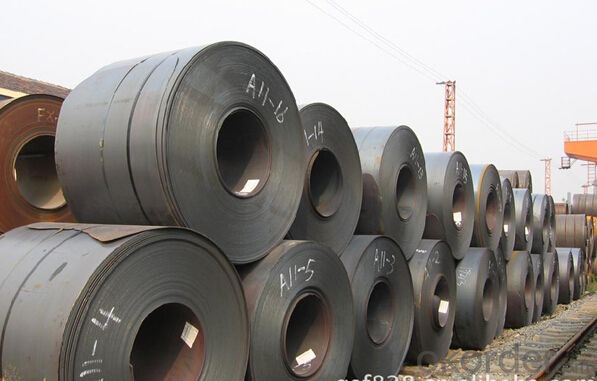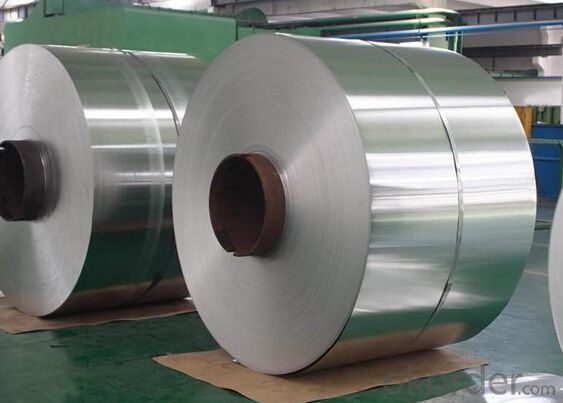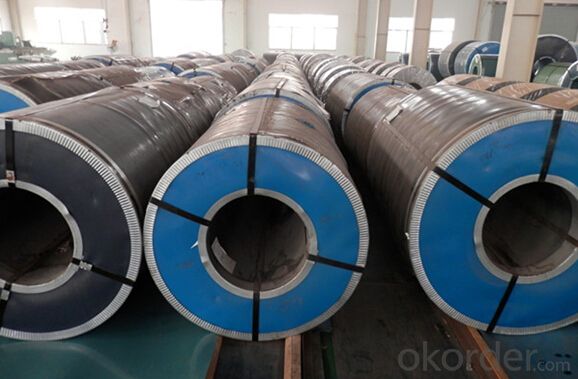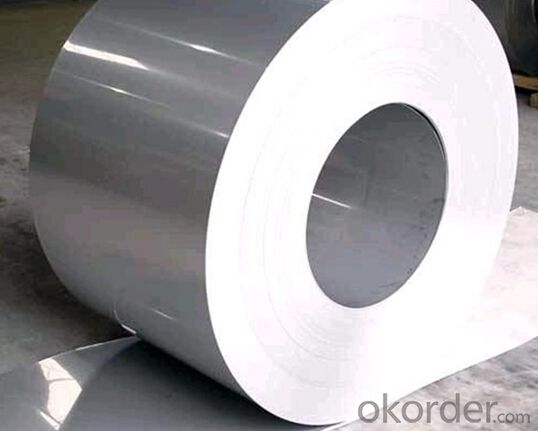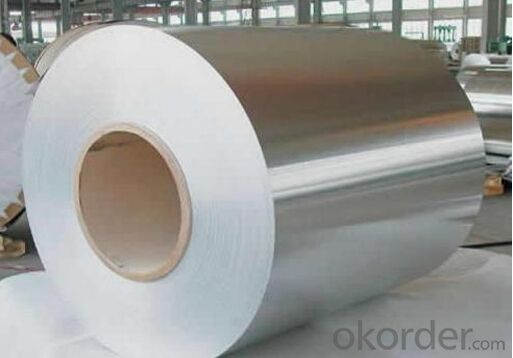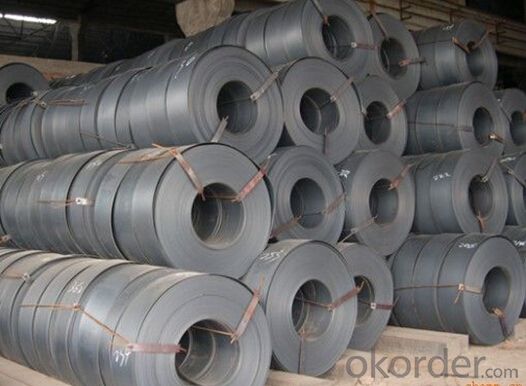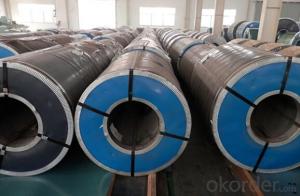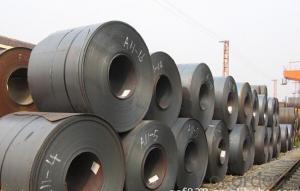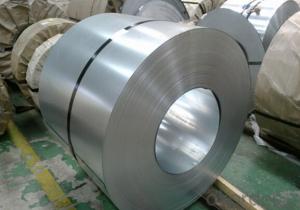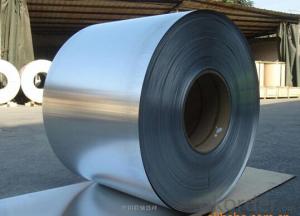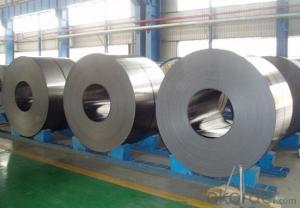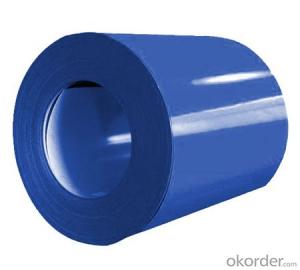Grade EN10346-DX51D+Z Galvanized Steel Coil
- Loading Port:
- Tianjin
- Payment Terms:
- TT OR LC
- Min Order Qty:
- 3 m.t.
- Supply Capability:
- 10000 m.t./month
OKorder Service Pledge
OKorder Financial Service
You Might Also Like
Specification
Grade EN10346-DX51D+Z Galvanized Steel Coil
Specification of Grade EN10346-DX51D+Z Galvanized Steel Coil
1. Galvanized Steel Coil
(1) Width: 600-1570mm
(2) Thickness: 0.13-5.0mm
(3) Grade: JIS G3302-SGCC-SGC570, SGCH (full hard-G550), SGHC-SGH540
EN10346-DX51D+Z, DX53D+Z, S250GD-S550GD
STM A653-CS-B, SS255-SS550
(4) Zinc Coating: Z40g/m2~Z500g/m2 (both side total coating thickness)
2. Galvalume Steel Coil
(1) Width: 600~1500mm
(2) Thickness: 0.15~2.30mm
(3) Grade: JIS G3321-SGLCC, SGLC400-570, (G550)
EN10346-DX51D+AZ, DX53D+AZ, S250-S550
ASTM A792M CS-B, SS255-SS550
(4) AZ Coating: AZ50~AZ185g/m2
3. Prepainted Galvanized Steel Coil (PPGI)
(1) Width: 600~1250mm
(2) Thickness: 0.19~1.50mm
(3) Grade: JIS G3312-CGCC, CGC340-570, (G550)
ASTM A755M CS-B, SS255-SS550
(4) Zinc Coating: Z40g/m2~Z500g/m2 (both side total coating thickness)
4. Prepainted Galvanized Steel Coil (PPGL)
(1) Width: 600~1250mm
(2) Thickness: 0.20~1.50mm
(3) Grade: JIS G3322-CGLCC, CGLC340-570, (G550)
ASTM A755M CS-B, SS255-SS550
(4) AZ Coating: AZ50~AZ185g/m2 (both side total coating thickness)
5. Cold Rolled Steel Coil (Soft) (for further information, pls click the product name)
(1) Width: 600~1570mm
(2) Thickness: 0.13~2.50mm
(3) Grade: JIS G3141-SPCC-SD, SPCD-SD, SPEC-SD
JIS G3135-SPFC 340/390/440
EN10130-DC01, DC03, DC04
SAE1006, SAE1008
ASTM A424-TypeⅡ
6. Cold Rolled Steel Coil (Full Hard) (for further information, pls click the product name)
(1) Width: 600~1570mm
(2) Thickness: 0.13~2.50mm
(3) Grade: JIS G3141-SPCC-1B, SPCC-1D
7. Hot Rolled Steel Coil
(1) Width: 1000~1524mm
(2) Thickness: 1.20~16.5mm, other thickness can be negotiation
(3) Grade: JIS G3101-SS400, JIS G3132-SPHT1/2/3, ASTM A36, Q195, Q235 etc.
Company Introduction of the Grade EN10346-DX51D+Z Galvanized Steel Coil
CNBM International Corporation is the most import and export platform of CNBM group(China National Building Material Group Corporation) ,which is a state-owned enterprise, ranked in 270th of Fortune Global 500 in 2015.
With its advantages, CNBM International are mainly concentrate on Cement, Glass, Iron and Steel, Ceramics industries and devotes herself for supplying high quality series of refractories as well as technical consultancies and logistics solution.
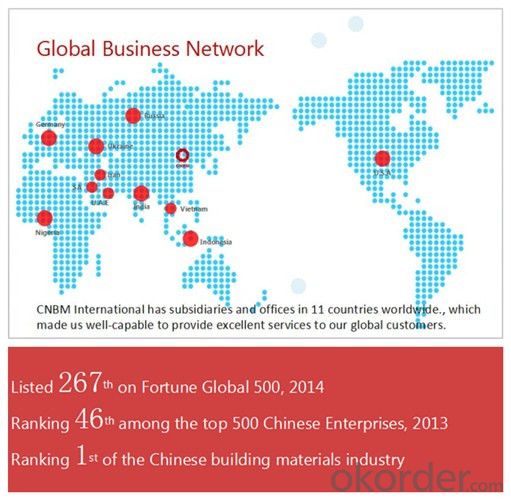
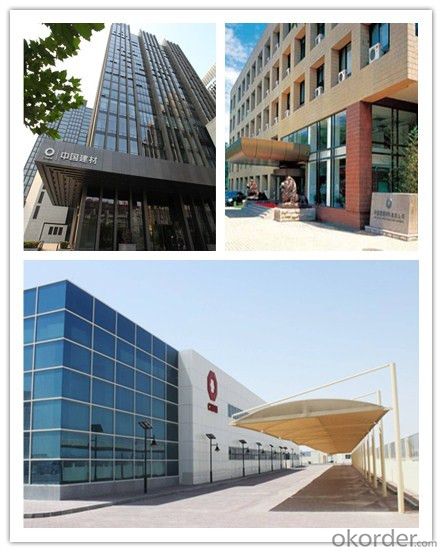
Packaging & Delivery of the Grade EN10346-DX51D+Z Galvanized Steel Coil
Packaging Detail | Sea worthy packing /as per customer's packing instruction |
Delivery Detail | 15 ~ 40 days after receiving the deposit |
Products Show:
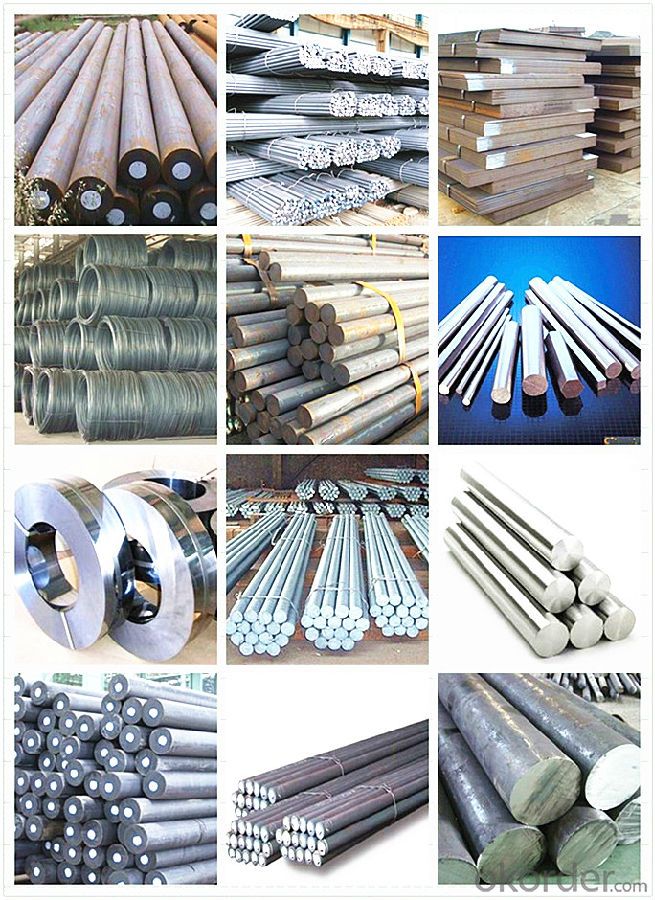
FAQ:
Are you a trading company or manufacturer? | Manufacturer |
What’s the MOQ? | 3 metric ton |
What’s your delivery time? | 15-35 days after downpayment received |
Do you Accept OEM service? | Yes |
what’s your delivery terms? | FOB/CFR/CIF |
What's the Payment Terms? | 30% as deposit,70% before shipment by T/T |
Western Union acceptable for small amount. | |
L/C acceptable for large amount. | |
Scrow ,Paybal,Alipay are also ok | |
Why choose us? | Chose happens because of quality, then price, We can give you both. Additionally, we can also offer professional products inquiry, products knowledge train (for agents), smooth goods delivery, excellent customer solution proposals. |
What's your available port of Shipment? | Main Port, China |
What’s your featured services? | Our service formula: good quality+ good price+ good service=customer's trust
|
Where are your Market? | Covering more than 160 countries in the world |
- Q: What are the properties of leaded steel?
- Leaded steel is a type of steel alloy that contains a small percentage of lead. This addition of lead provides several properties to the steel, including improved machinability, enhanced lubricity, and better chip formation during machining processes. Leaded steel also exhibits increased resistance to wear and galling, making it suitable for applications in which friction and sliding contact occur. Additionally, leaded steel has good corrosion resistance and can be easily welded and formed. However, it is important to note that leaded steel should be handled with caution due to the potential health hazards associated with lead exposure.
- Q: How does special steel contribute to the agricultural sector?
- Special steel contributes to the agricultural sector in several ways. Firstly, special steel is known for its strength and durability, making it an ideal material for manufacturing various agricultural machinery and equipment. This includes tractors, plows, harvesters, and irrigation systems, among others. These machines require robust and reliable components that can withstand the demanding conditions of agricultural work, and special steel provides the necessary strength and resistance to wear and tear. Additionally, special steel can be used to produce high-quality cutting tools that are essential in farming operations. Implements such as sickles, scythes, and pruning shears need to have sharp and durable blades to efficiently cut through vegetation. Special steel's hardness and strength make it a suitable material for manufacturing these tools, ensuring they retain their sharpness even after prolonged use. Furthermore, special steel can contribute to the agricultural sector by enabling the construction of sturdy and durable infrastructure. Agricultural buildings, storage facilities, and fencing often require strong and corrosion-resistant materials to withstand the elements and protect crops, livestock, and equipment. Special steel, with its resistance to rust and structural integrity, can be used in the construction of barns, silos, sheds, and fencing, providing long-lasting and reliable structures. In conclusion, special steel plays a crucial role in the agricultural sector by providing the necessary strength, durability, and corrosion resistance required for the manufacturing of machinery, cutting tools, and infrastructure. Its properties contribute to improved efficiency, productivity, and reliability in agricultural operations, ultimately benefiting farmers and the overall agricultural industry.
- Q: How is special steel used in the production of gears?
- Special steel is commonly used in the production of gears due to its superior strength, durability, and resistance to wear and fatigue. The high-quality properties of special steel allow gears to withstand heavy loads, high speeds, and harsh operating conditions, ensuring reliable and efficient performance. Additionally, special steel can be heat treated to optimize its hardness and toughness, further enhancing gear performance and extending their lifespan.
- Q: Can special steel be used in the construction equipment manufacturing industry?
- Yes, special steel can be used in the construction equipment manufacturing industry. Special steel is known for its high strength, durability, and resistance to wear and corrosion, making it an ideal material for producing heavy-duty construction equipment such as excavators, bulldozers, cranes, and loaders. Additionally, special steel can be customized to meet specific requirements, ensuring the construction equipment meets the necessary performance and safety standards.
- Q: What are the limitations of using special steel in high-temperature applications?
- The utilization of special steel in high-temperature scenarios comes with its own set of constraints. One notable limitation is the potential for thermal expansion. Similar to other materials, special steel expands when subjected to high temperatures. This expansion can result in changes in dimensions and internal stress, which can impact the overall performance and integrity of the structure. Another constraint is the likelihood of oxidation and corrosion. Elevated temperatures can expedite the oxidation process, leading to the formation of oxides on the steel's surface. These oxides can cause corrosion and weaken the material over time. To counteract this drawback, special steel alloys with enhanced resistance to oxidation and corrosion are frequently employed in high-temperature applications. Additionally, special steel may experience a decrease in strength at higher temperatures. The mechanical properties of the material, such as tensile strength and hardness, can be significantly diminished as the temperature rises. This reduction in strength can compromise the structural integrity of the component, making it more susceptible to failure. Lastly, special steel may possess a limited temperature range within which its desired properties can be maintained. Beyond a certain temperature threshold, the material may undergo phase transformations or experience degradation, resulting in a loss of its intended characteristics. It is crucial to carefully assess the operating temperature and select the appropriate special steel alloy with a suitable temperature range for the specific high-temperature application. In conclusion, while special steel presents numerous advantages for high-temperature applications, such as exceptional strength, durability, and heat resistance, it is vital to acknowledge its limitations. Considerations such as thermal expansion, oxidation and corrosion, reduced strength at high temperatures, and temperature restrictions must be taken into account and addressed when utilizing special steel in these applications.
- Q: Can special steel be used in the manufacturing industry?
- Yes, special steel can be commonly used in the manufacturing industry due to its unique properties and characteristics. Special steel alloys are often preferred for their high strength, durability, and resistance to corrosion, heat, and wear. These properties make special steel suitable for various applications in manufacturing, such as in the production of machinery, tools, automotive parts, aerospace components, and construction materials.
- Q: What are the different surface treatments used for special steel?
- There are several surface treatments commonly used for special steel, including galvanization, nitriding, carburizing, and plating. Galvanization involves applying a protective zinc coating to prevent corrosion. Nitriding is a heat treatment process that enriches the surface of the steel with nitrogen, enhancing hardness and wear resistance. Carburizing involves introducing carbon into the steel's surface, creating a hardened layer. Plating, on the other hand, involves covering the steel with a thin layer of another metal, such as chrome or nickel, for improved aesthetics and corrosion resistance.
- Q: What is the cost of special steel compared to regular steel?
- The cost of special steel is generally higher compared to regular steel due to its unique properties, composition, and production processes.
- Q: What are the requirements for special steel used in high-temperature applications?
- To ensure optimal performance and durability in extreme conditions, special steel utilized in high-temperature applications, such as aerospace, power generation, and oil and gas industries, must fulfill specific criteria. Some essential requirements for this type of steel include: 1. Excellent strength and resistance to deformation at elevated temperatures are vital for maintaining structural integrity and preventing failure or deformation under extreme heat. 2. High resistance to oxidation is necessary to prevent the formation of oxides on the steel's surface, which can weaken its structure and compromise its performance. 3. Exceptional creep resistance is essential to prevent excessive deformation or failure over time caused by constant stress at high temperatures. 4. Good thermal stability allows the steel to retain its mechanical properties even after prolonged exposure to high temperatures, ensuring reliable and consistent performance. 5. In addition to oxidation, the steel must also possess good corrosion resistance to protect against various corrosive agents present in the environment, such as acids, alkalis, and salts. 6. High resistance to thermal fatigue is crucial to prevent cracking, fracturing, or failure due to repeated heating and cooling cycles. 7. Low thermal expansion minimizes dimensional changes and maintains dimensional stability under high-temperature conditions, preventing unwanted distortions or misalignments. 8. Good weldability facilitates the fabrication and joining of components, enabling the construction of complex structures and assemblies required in high-temperature environments. By meeting these requirements, special steel used in high-temperature applications can withstand extreme heat, preserve its structural integrity, and deliver reliable performance in demanding conditions.
- Q: Can special steel be used for medical implants?
- Yes, special steel can be used for medical implants. It is commonly used in the manufacturing of medical devices and implants due to its exceptional strength, corrosion resistance, and biocompatibility. Special steel alloys, such as stainless steel or titanium alloys, are often utilized for various types of medical implants, including joint replacements, dental implants, and bone fixation devices.
Send your message to us
Grade EN10346-DX51D+Z Galvanized Steel Coil
- Loading Port:
- Tianjin
- Payment Terms:
- TT OR LC
- Min Order Qty:
- 3 m.t.
- Supply Capability:
- 10000 m.t./month
OKorder Service Pledge
OKorder Financial Service
Similar products
Hot products
Hot Searches
Related keywords
